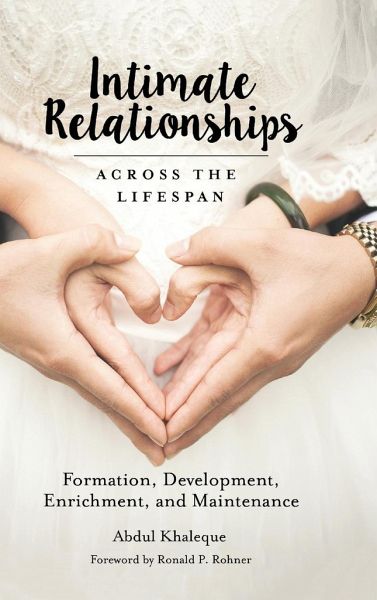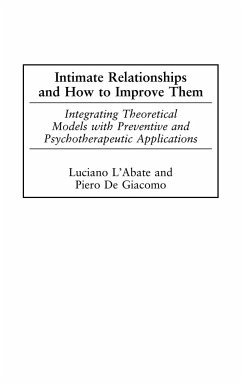
Intimate Relationships Across the Lifespan
Formation, Development, Enrichment, and Maintenance
Versandkostenfrei!
Versandfertig in 1-2 Wochen
80,99 €
inkl. MwSt.
Weitere Ausgaben:

PAYBACK Punkte
40 °P sammeln!
This comprehensive research-based book is a next-generation study of intimate relationships that explores implications for health and well-being across cultures, genders, and traditional as well as non-traditional relationships. This book fills the need for a contemporary analysis of intimate relationships and their implications for people's health, well-being, and quality of life. It covers topics not ordinarily included in textbooks on this topic, in non-traditional areas such as LGBT relationships. The text also addresses intervention strategies for relationship problems and offers tools an...
This comprehensive research-based book is a next-generation study of intimate relationships that explores implications for health and well-being across cultures, genders, and traditional as well as non-traditional relationships. This book fills the need for a contemporary analysis of intimate relationships and their implications for people's health, well-being, and quality of life. It covers topics not ordinarily included in textbooks on this topic, in non-traditional areas such as LGBT relationships. The text also addresses intervention strategies for relationship problems and offers tools and techniques for assessing intimate relationships. Chapters are organized to present information about the origin, formation, development, enrichment, and maintenance of intimate relationships in a way that allows readers to build upon what they have learned. The text provides integrated and evidence-based information on almost all aspects of intimate relationships and will be of interest to undergraduate and graduate students as well as faculty in family studies, psychology, and other social sciences. Moreover, counselors, clinicians, and therapists working on conflict, violence, abuse, maladjustment, depression, deterioration, dissolution, reconstruction, and enrichment of marital and non-marital intimate relationships will find this text valuable for their practice.













